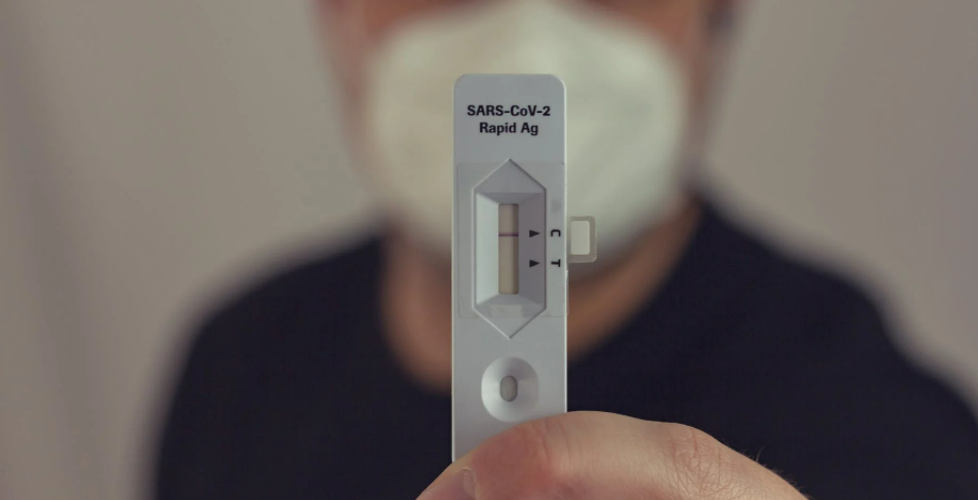
How Much Does a COVID-19 Test Cost?
As we enter year 3, optimism remains that the COVID-19 pandemic will become something we talk about in the past tense. Sadly, though, we’re not there yet.
In addition to measures to prevent the spread—like vaccination, social distancing, and mask-wearing—COVID-19 testing is going to be the key to getting back to normal. When individuals, whether they have suspected symptoms of the virus or not, receive a positive test result, they can take measures to minimize how many contacts they expose.
How easy is it to find—and pay for—COVID-19 testing where you live? While access and pricing vary from region to region, a major national initiative is working to provide no-cost at-home COVID-19 testing for every household across the country.
In this blog post, we’ll answer a few quick questions about COVID-19 test types and costs, and break down the process for getting tests delivered to your door at no charge.
How Much Does a Covid19 Test Cost?
The good news is, it’s not too difficult to find affordable—if not free—COVID-19 testing near you. For example, the U.S. Department of Health & Human Services (HHS) has made COVID-19 tests available to everyone in the U.S., including the uninsured. You can search for sites, like health centers and pharmacies, offering low- and no-cost testing in your area.
How Much Does a Rapid Covid Test Cost, and Does Insurance Pay for it?
The rapid covid test cost with insurance is $0—yes, free.
If you’re wondering about the rapid covid test cost without insurance, the HHS offers guidance for COVID-19 care for uninsured individuals. For patients without insurance coverage, the Health Resources & Services Administration (HRSA) Uninsured program reimburses health care providers who provide COVID-19 care to individuals without insurance coverage. This program covers testing, treatment, and vaccine administration. For these services, the patient pays nothing at the point of care. The health care provider is then reimbursed for any costs.
How Much Does an At-Home Covid Test Cost, and Does Insurance Pay for It?
When purchased from a pharmacy like CVS or Walgreens, at-home COVID-19 tests cost around $10-12. A pair of recent mandates from the Biden-Harris administration make the at-home Covid test kit free of cost for Americans.
As of January 15, 2022, those covered by health insurance can order at-home COVID-19 tests online or buy them at a store or pharmacy, with the cost either covered by insurance or later reimbursed by insurance. Under this program, covered individuals can receive up to 8 tests per month on a free or reimbursed basis.
Another major initiative aims to increase access to testing (including both over-the-counter tests sold by pharmacies and in-person testing at local sites such as health centers). Through the government-launched website, covidtests.gov, Americans are eligible to receive at-home COVID-19 testing kits at zero cost.
How Do I Order My Free COVID Test from the Government?
The process for requesting free at-home test kits is simple:
- Go to https://www.covidtests.gov/.
- Click the big blue “Order Free At-Home Tests” button. This will take you to a USPS website where you can place your order.
- To complete the page, you’ll need to provide your first and last name, and a shipping address. You can (but aren’t required to) provide an email address if you’d like to receive a notification when your order has shipped.
- The default order is limited to 4 at-home COVID-19 testing kits. When you submit your order, you don’t pay a cent—not for the test kits, or any shipping.
- Click the green “Check Out Now” button to complete your order.
Through this program, each household (residential address) can receive an order of 4 rapid antigen tests, and tests are expected to ship (also free) in late January.
How Accurate Are Rapid Antigen Tests for COVID-19?
For symptomatic individuals, the rapid antigen test’s accuracy is between 70-90% (72%, according to a 2021 study). For asymptomatic individuals—those who aren’t displaying COVID-19 symptoms—the rapid test is more like 50-60% accurate.
The rapid test’s ability to identify a positive case also depends on timing. According to the study cited above, rapid tests more accurately detect COVID-19 in patients who are in their first week of symptoms (78% accurate, on average), with that average dropping to 51% in the second week.
What Should I Do After My Rapid Test?
If a rapid test is positive, it’s quite likely that you do, in fact, have COVID-19. With the small chance of a false positive result, you might consider taking a PCR test as a follow-up. This is because the PCR test is considered the gold standard for testing, with improved accuracy over the rapid test. Regardless, anyone who tests positive is encouraged to quarantine for 10 days, or until a negative test result is achieved.
If a rapid test is negative, you could still possibly have COVID-19. The negative result simply means that your sample did not contain the antigen indicative of the virus entering your system. False-negative results are possible with this test type, so a follow-up PCR test can again provide confirmation with better accuracy.
Experience You Can Count On
With 20 years of experience in molecular testing and a worldwide presence, at BioCollections Worldwide, we’re proud to be at the forefront of COVID-19 research and testing. We aim to connect the dots between testing sites, sample shipping and logistics, and in-house lab testing. Our comprehensive quality program ensures that every component of the sample collection and delivery processes is reliably able to serve communities across the globe. To learn more about who we are and what we do, visit our website or contact us directly.
